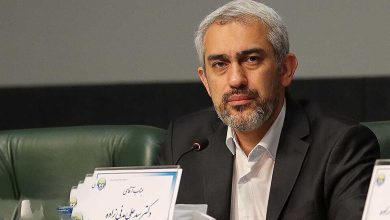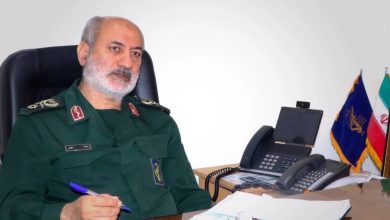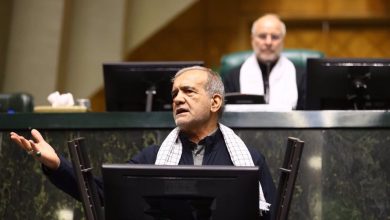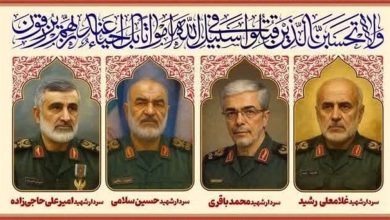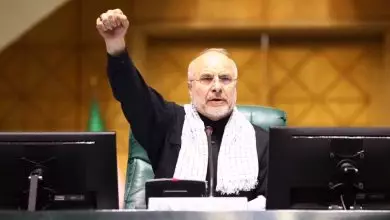Iran FM commends Leader’s prudent position on negotiations, emphasizing a firm stance against engaging in talks under pressure
Iran's Foreign Minister, Abbas Araghchi, has reiterated that the Islamic Republic will steadfastly refuse to participate in negotiations conducted under duress. This stance aligns with the principles outlined by the Leader of the Islamic Revolution, Ayatollah Seyyed Ali Khamenei, who advocates for dialogue grounded in logic and strategic rationale.
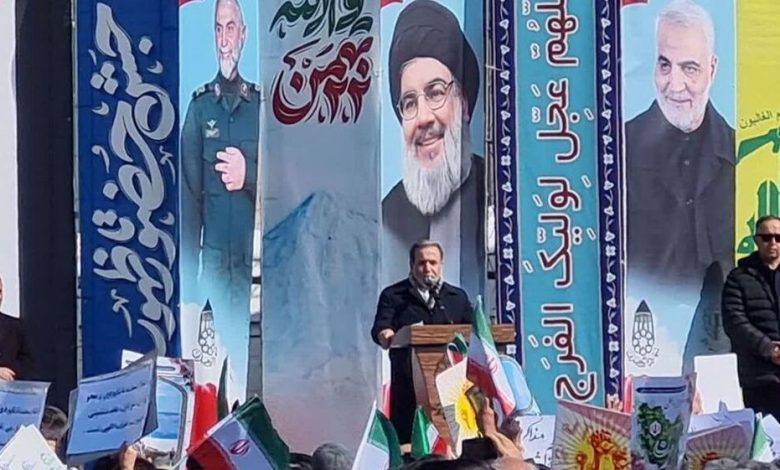
During a rally commemorating the 46th anniversary of the Islamic Revolution’s victory in Hamadan, a city in western Iran, on Monday, Araghchi dismissed negotiation proposals put forward by the United States, specifically those made during Donald Trump’s presidency, labeling them as misleading.
He emphasized that the Islamic Revolution’s primary objective was to prevent any foreign influence over Iran’s leadership and its citizens. “Our foreign policy is rooted in the principle of ‘Neither East nor West,’ signifying independence from global superpowers while maintaining engagement,” he articulated.
Araghchi unequivocally stated that the Islamic Republic harbors a deep-seated mistrust towards engaging in negotiations with the United States, citing a historical pattern in Washington’s failure to honor its commitments.
A representative from Iran stated that the nation engaged in negotiations sincerely and successfully reached an agreement, yet the result was marked by non-compliance and withdrawal by the counterparty, specifically criticizing Washington’s unilateral and unauthorized withdrawal from the 2015 nuclear accord with Tehran and other global powers.
The chief diplomat highlighted that the decision to reject negotiations with the United States was a deliberate and expert-based strategy, rather than an act of obstinacy or an emotional response.
**”Relying on the United States Again is Not a Logical Decision”**
“Regaining trust in the United States is not a logical decision, according to a statement highlighting Iranian sentiment. Emphasizing the desire for independence, the speaker attributed this need to the nation’s past reliance on Western powers, particularly under the US-supported Pahlavi regime, which deprived Iran of its sovereignty.”
Referencing a historical precedent of Iran’s compliance with the United States during the era of the monarchy, he highlighted a notable instance.
In a recent interview, the former monarch, Shah, revealed that he departed Iran as the Revolution neared victory upon being instructed by the Americans, underscoring the significant degree of foreign influence over the country prior to the Revolution.
Amid ongoing tensions with the United States, Araghchi emphasized the futility of negotiations under pressure, stating, “No nation engages in talks under duress unless it aims to capitulate. Why should we enter negotiations while confronted with threats and sanctions?”
Araghchi criticized Washington’s “maximum pressure” strategy toward Tehran, highlighting the contradictory nature of the United States’ approach, which professes a readiness for dialogue yet persists with stringent measures. Iran remains firm in labeling this stance as disingenuous, impractical, and ultimately ineffective.
He questioned the rationale for placing trust in entities that, in his view, solely engage in imposing sanctions and issuing threats.
The Iranian Foreign Minister emphasized that the nation’s leadership, bolstered by popular support, remains steadfast in preventing any external entities from exerting influence over the country’s sovereignty.
Araghchi commended the Leader’s recent statements on negotiations, describing them as a showcase of wise and insightful leadership. He characterized the remarks as “highly intelligent and grounded in logic.”
In a resolute statement, he affirmed that Iran remains unwavering in its resistance to external coercive measures, vowing to continue its defiance against hegemonic pressures.
Araghchi stated that the day commemorates both the anniversary of Iran’s Islamic Revolution and a notable victory for the Gaza Strip.
The Palestinian populace has faced 16 months of sustained pressure from Zionist forces. Their continued resistance compelled the Israeli government to agree to a deal involving prisoner exchanges. “This is the result of unwavering resistance,” he stated.
The official highlighted Gaza’s persistent resistance efforts amidst an intense and violent military campaign by Israeli forces on Palestinian territories. These actions ultimately compelled Tel Aviv to agree to a ceasefire arrangement with the coastal enclave’s resistance group, Hamas.
He criticized former President Donald Trump’s recent proposal to transfer Gaza’s “ownership” to the United States, denouncing it as a clear breach of international law.
In a recent development, it has been disclosed that a meeting took place in Tehran where a delegation of leaders from Hamas reiterated their steadfast commitment to their homeland.
Araghchi concluded by stating that resistance officials, in a meeting with Ayatollah Khamenei, likened the people of Gaza to olive trees, emphasizing their deep-rooted connection to the land and their unwavering commitment to remaining in their homeland.


